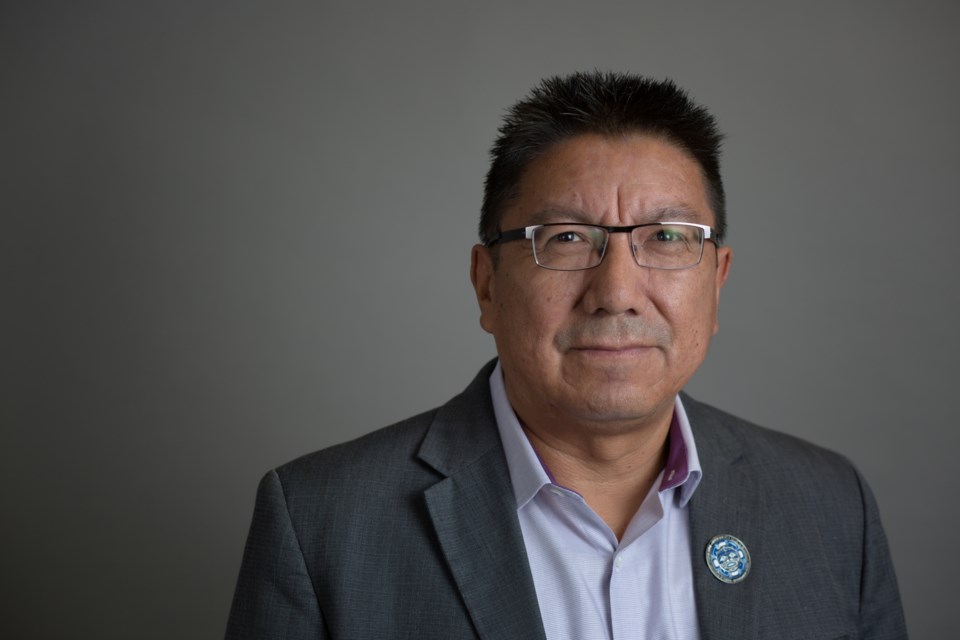EDITOR’S NOTE: This article originally appeared on The Trillium, a Village Media website devoted exclusively to covering provincial politics at Queen’s Park.
Indigenous leaders are warning the Ford government that its failure to consult their people on its mining legislation could prompt “a confrontation on the ground.”
Nishnawbe Aski Nation (NAN) Grand Chief Alvin Fiddler was at Queen’s Park Monday to watch the debate over Bill 5, the Protecting Ontario by Unleashing our Economy Act.
“It's very concerning to hear some of the responses from the government, from the MPPs from the Conservative side, talking about how they see our territory as their land, as their resources,” Fiddler told reporters.
The bill, tabled in April, was expected to be referred to a committee on Tuesday. It would give the province the power to designate “special economic zones,” that fit criteria to be developed by cabinet.
Cabinet would then be able to exempt selected proponents and projects from requirements under any provincial law or regulation, including bylaws of municipalities and local boards, that would otherwise apply in that zone.
The bill also repeals the Endangered Species Act and replaces it with legislation that environmental groups argue offers far weaker protection and empowers cabinet to exempt projects from archeological assessment requirements.
“We see it as a direct attack on our nation, on our treaty,” said Fiddler.
The government said in its throne speech that it will use the legislation to speed along critical minerals mining projects “alongside an uninterrupted commitment to meeting duty to consult requirements,” and Minister of Indigenous Affairs Greg Rickford reiterated that to The Trillium Monday.
“Bill 5 is going to provide an opportunity to enhance consultation,” Rickford said. “You heard from the speech from the throne that nothing about the duty to consult will be compromised. In fact, when you take a look at the concept of an economic zone, it will enhance the duty to consult, because it'll sharpen the focus on the priorities that First Nations communities have asked for in those zones.”
Asked how the legislation would be used to enhance Indigenous consultation, Rickford said, “It's pretty early for that question, when it’s moving to the legislative floor for debate.”
Rickford noted that two Indigenous communities are leading environmental assessments for roads to the mineral-rich Ring of Fire, and said that’s a strategy the government would like to use more broadly.
Asked about Rickford’s comments, Fiddler said the government should have started by consulting with Indigenous people on the bill itself.
That was echoed by Wunnumin Lake First Nation Chief Archie Wabasse in a letter to the premier, asking him to halt the bill until the province fully consults with Indigenous people.
“We stand firm: no development without consultation, no legislation without Indigenous leadership at the table, no economic growth at the cost of our rights, our lands, or our future generations,” the letter says.
Fiddler, along with Grand Chief of Mushkegowuk Council Walter Leo Friday and NDP MPP Sol Mamakwa, warned that there will be consequences if the government doesn’t change course on the legislation.
“Our young people, our leadership, are more and more asserting their authority, their jurisdiction, over their lands and resources, and they will not stand for this,” said Fiddler.
“That's our fear, and I think that's something we want to avoid as best as we can, or as much as we can — that confrontation on the ground that will most likely happen if this bill goes through,” he said.
Using the legislation to “open up the North” and to “allow people to do whatever they want to do, whenever they want to do, wherever they want to do,” he added, “that will lead to confrontation, for sure.”
The bill may prompt legal confrontation as well.
“I think there's going to be lots of legal challenges, a lot of legal fights, but I think at the end of the day, if they don't do anything, the fight is going to be on the land,” said Mamakwa.
Opposition to the bill should not be taken as opposition to economic development, said Fiddler, who argued that Indigenous communities want economic progress more than anyone.
“We need it. If you travel to any of our communities, you will see the social conditions and the challenges that exist in our communities,” he said, adding that his own community doesn’t have access to clean drinking water.
“Many of our communities are struggling with housing or infrastructure generally,” he continued. “So we want economic prosperity. It's the how — we cannot afford to have Doug Ford dictate that to us through this piece of legislation.”
Fiddler said NAN will be inviting the premier to its Chiefs Spring Assembly later this month. If Ford accepts that invitation, it could lead to meaningful dialogue with the leadership, Fiddler said.




